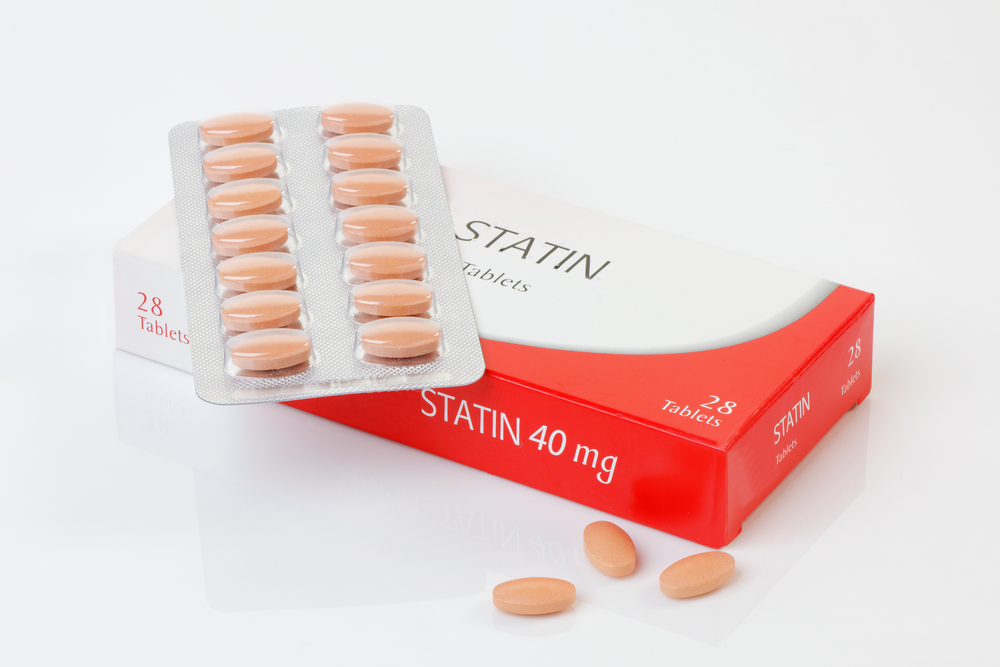
Well this was an interesting review for all sorts of reasons. I have to admit I had never considered statins as a possible treatment to improve cognitive function in dementia.
Statins are of course the cholesterol-busting drug of choice which seem to be heading inexorably for our water supply (I am only slightly exaggerating….). Personally I am right behind Ben Goldacre in my scepticism about what proponents say is a “harmless” life-saving preventative treatment.
Correct me if I’m wrong, (it does happen) but in the general population your risk of having a heart attack is reduced by 0.5% if you take statins. For me personally, that’s not a great reason to take a very powerful drug every day for ever. I don’t think many of the people taking or prescribing statins know that statistic.
However, some people who are at increased risk of heart disease and stroke will reduce their risk a great deal more than this by taking statins, but because we’re not quite sure who these people are, statins are now the most widely prescribed drug in the developed world. Millions and millions of people take them every day. Despite this, there has been no coordinated effort to systematically identify and document the effect, positive or otherwise, these drugs are actually having in routine clinical practice.
As Ben Goldacre says, it’s a mess.
I also have a bit of a problem with vulnerable dementia sufferers being used as a potential new market for just about any drug going. Perhaps I am being cynical.

There is considerable uncertainty about the risks and benefits of statins
Statins for the treatment of dementia is an update of a Cochrane Review originally published in 2010. Its primary objective is to assess the clinical efficacy and safety of statins in treating Alzheimer’s Disease and Vascular Dementia.
Methods
As with all Cochrane Reviews, the researchers used the extremely rigorous systematic review methodology to ensure that all trials ever conducted on the subject were identified and assessed for inclusion and analysis. I had a quick look at the Cochrane Dementia Review Group’s online specialised register of controlled dementia studies – ALOIS, and as you would expect, most of the studies were looking at statins for prevention, rather than as a treatment. Interestingly, I noticed there was a study record of a commercially-sponsored “ongoing” treatment study which was due to finish in 2011. There are still no published results for this trial. Non-publication of trial results happens all too often (see all about this on the AllTrials Campaign website), particularly if the trial sponsor is disappointed with the results. This is a very serious problem, particularly as it could mean that important data about side effects never see the light of day.
The Cochrane researchers identified four studies (one more than the 2010 review) meeting the inclusion criteria of randomised double-blinded placebo-controlled trials with cognition measured as an outcome. All four studies were judged to be of high quality and at low risk of bias, but two of them were quite small (63 and 37 participants). The two larger studies had 640 and 406 participants. There were no studies found on the effect of statins on people with vascular dementia.
Results
The included studies measured the primary outcome of cognition with the Alzheimer’s Disease Assessment Scale – cognitive subscale (ADAS-Cog) and the Mini Mental State Examination (MMSE). The pooled data from the four trials found no evidence that statins help in the treatment of cognitive decline in dementia on either of these cognitive scales:
- For ADAS-Cog, the mean difference was -0.26 with a confidence interval of -1.05 to 0.52 (P value = 0.52)
- For MMSE, the mean difference was -0.32 with a confidence interval of -0.72 to 0.06 (P value = 0.10)
A secondary objective of the review was to see if a treatment effect was dependent on cholesterol level, ApoE genotype or cognitive level. The studies did not report any differences depending on ApoE or cognitive level. However, patients with elevated cholesterol levels were excluded from the two larger studies for safety and ethical reasons, and one of the smaller studies reported that people with higher cholesterol level at baseline experienced most cognitive benefit. However, this study was too small to show clinical significance.

This well conducted Cochrane review found no evidence that statins are effective at treating cognitive decline in dementia
Safety concerns
The other primary objective of the review was to assess the safety of statins in the treatment of dementia. Due in part to the poor reporting of adverse events in the included studies, this important issue seems to have taken a bit of a back seat. The review concludes that:
The statins were well tolerated and the incidence of adverse events was low. The statins group did not have a significantly higher rate of adverse events requiring discontinuation of treatment when the data were combined.
Hmm. Well earlier on in the review a couple of sentences relating to side-effects in one of the included studies rather jumped out at me:
There were 60 (19.1%) atorvastatin-treated and 69 (21.2%) placebo-treated patients who experienced serious adverse events (SAEs), six of which in the atorvastatin group and one in the placebo group were considered to be treatment related by the investigator or sponsor. The SAEs considered to be treatment-related in the atorvastatin group were hepatitis, acute renal failure/rhabdomylosis/pancreatitis, abdominal pain/nausea/chest discomfort, transaminases elevation, liver disorder and gastrointestinal haemorrhage.
Is it me, or is that pretty shocking? I really don’t think it should be chucked into a pool of data without making a ripple. What do you think?

Are we doing everything we can to ensure that drug safety is a priority?
Link
McGuinness B, Craig D, Bullock R, Malouf R, Passmore P. Statins for the treatment of dementia. Cochrane Database of Systematic Reviews 2014, Issue 7. Art. No.: CD007514. DOI: 10.1002/14651858.CD007514.pub3.


RT @Mental_Elf: Statins have no beneficial effect on cognition in dementia, but can have serious side-effects http://t.co/IpEnn4yEBX
Statins have no beneficial effect on cognition in dementia, but can cause serious side-effects: This updated C… http://t.co/jisgoEFF0A
The Mental Elf liked this on Facebook.
Loved your statins blog @SDenegri Wondering what you think of our piece today on statins for dementia? http://t.co/KTI6jDSE4N Cheers, André
Excellent piece via @Mental_Elf about statins and dementia: http://t.co/KJhcOtAoKV #statins #dementia
@MentalElf blog on new #Cochrane review on statins for #dementia – safety issues seem to be lost in the data http://t.co/dK1hABdaLX
And what do a pair of wellies and a spade have to do with it?
RT @Mental_Elf: Today @ALOISCommunity gives it to us straight on #Statins for #Dementia http://t.co/KTI6jDSE4N
In the general population, your risk of having a heart attack is reduced by 0.5% if you take statins http://t.co/KTI6jDSE4N
@bengoldacre What do you think of our blog about statins for dementia? http://t.co/KTI6jDSE4N Cheers, André
@senseaboutsci Interested in your thoughts on our blog about statins for dementia: http://t.co/KTI6jDSE4N Cheers, André
Good question Ben. Tenuous image justification coming up: “This updated Cochrane review on statins for the treatment of dementia contains worrying adverse effects data, but Caroline Struthers has to do a significant amount of digging to root it all out” I’ll get my coat…
Seems an odd study to do given the known side effects of statins… http://www.scientificamerican.com/article/its-not-dementia-its-your-heart-medication/
Well conducted Cochrane review finds no evidence that statins are effective at treating cognitive decline in dementia http://t.co/KTI6jDSE4N
Also, in the eLEAD study, 20% of patients in both statin and placebo groups experienced SAEs. This may seem high, but because it occurred in both groups, it is not necessarily treatment related. Note too that SAEs includes things like asthenia and falls (that resulted in hospitalisation), which are likely to be fairly common in the elderly patients with dementia.
Statins have no beneficial effect on cognition in dementia http://t.co/7ssBcJ5jZr
Been following STATIN WARS? Check out our contribution on statins for dementia http://t.co/IpEnn4yEBX
Statins have no beneficial effect on cognition in dementia, but can cause serious side-effects http://t.co/xit7cXdnqc via @sharethis
Statins have no beneficial effect on cognitn in dementia,can cause serious side-effects http://t.co/mnTT8k9akR via via @Mental_Elf
Pls RT @cochranecollab Statins have no beneficial effect on cognition in dementia, but can have serious side-effects http://t.co/KTI6jDSE4N
. @Mental_Elf @DrAlisonHill @cochranecollab so do we know whether physical activity would be better? #miracledrug #publichealth
Pls RT @alzheimerssoc Statins have no beneficial effect on cognition in dementia, but can have serious side-effects http://t.co/KTI6jDSE4N
Pls RT @BMJ_latest Statins have no beneficial effect on cognition in dementia, but can have serious side-effects http://t.co/KTI6jDSE4N
Pls RT @DementiaUK Statins have no beneficial effect on cognition in dementia, but can have serious side-effects http://t.co/KTI6jDSE4N
Mental Elf: Statins have no beneficial effect on cognition in dementia, but can cause serious side-effects http://t.co/2G3YRZp2lQ
Thanks for that extra detail Lucy
I just read the study ;)
@Mental_Elf #Statins left me so cognitively impaired I couldn’t remember anyone’s name, how to drive, operate cutlery or focus on anything! At 47yrs old !!
There’s considerable uncertainty about risks & benefits of #statins including new Cochrane SR on statins for dementia http://t.co/IpEnn4yEBX
Statins have no beneficial effect on cognition in dementia, but can cause serious
http://t.co/PdmhsvMgXU via @sharethis
I agree the rate of SAEs were high in both the treatment and the placebo group- people with dementia do not have a great time whether they are in a trial or not! But in the statin group the investigators said that 6 out of the 60 SAEs were treatment related, and in the placebo group only 1 was considered treatment related. That is the statistic that shocked me – six times as many treatment related SAEs in the statins group. Please correct me if I have misinterpreted what the review says, but I don’t think I have.
Statins have no beneficial effect on cognition/dementia, but can have serious side-effects http://t.co/JxCbGCE1aH and http://t.co/2e80Hb02Ed
Poor reporting of side effects in updated Cochrane review of Statins for Alzheimer’s Disease & Vascular Dementia http://t.co/IpEnn4yEBX
Don’t miss: Statins have no beneficial effect on cognition in dementia, but can have serious side-effects http://t.co/KTI6jDSE4N
Olivia Cialdi liked this on Facebook.
RT @cochranecollab: RT @Mental_Elf: #Statins have no beneficial effect on cognition in #dementia, but can have serious side effects http://…
Statins have no beneficial effect on cognition in dementia, but can cause serious side-effects http://t.co/A1rhCExhTW
@Mental_Elf says: Statins have no beneficial effect on cognition in dementia, but can have serious side-effects http://t.co/41sC5RQqyZ
Statins have no beneficial effects on cognition/dementia but may have serious side-effects http://t.co/JxCbGCE1aH and http://t.co/2e80Hb02Ed
Olivia Cialdi liked this on Facebook.
The Mental Elf liked this on Facebook.